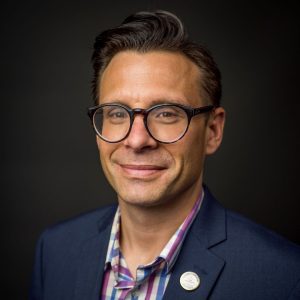A few weeks ago, I began this five-part series on changing the channel of our denominational conversation. We are preoccupied with so many pressing issues—political, social, moral, ethical, and denominational—that demand attention. It’s hard to ignore the clamor and focus on goals related to our core mission, but we must do so!
Dr. Ronnie Floyd, president of the SBC Executive Committee (EC) along with the other entity presidents, are trying to do this. At the Nashville annual meeting in June 2021, the EC will recommend we fulfill five goals called Vision 2025. This is a concentrated effort to change the channel—to shift our focus from a thousand other things vying for our attention to a few key drivers that will make an eternal difference.
The first of those goals is to “increase full-time, fully-funded missionaries by a net gain of 500, giving us 4,200 full-time, fully-funded missionaries through the International Mission Board.” The second goal is to “add 5,000 new SBC congregations to our Southern Baptist family, giving us over 50,000 congregations.” The third goal is to “increase total workers in the field through a new emphasis on ‘calling out the called’ and then preparing those who are called out by the Lord.” The fourth Vision 2025 goal is “turn around our ongoing decline in reaching, baptizing, and discipling 12 to 17 year-olds in the prime of their teenage years.”
The fifth goal is to “increase our annual giving in successive years and establish a new path of growth that will lead us to reach and surpass $500 million through the Cooperative Program to achieve these Great Commission goals.” In other words, to make a new commitment to a proven channel of giving.
One non-SBC Bible school president once told me, “The only people who don’t appreciate the Cooperative Program is Southern Baptists. Some of them just don’t realize what they have.” Leaders who are trying to fund mission programs and schools by societal fund-raising methods know the pressure and uncertainty it creates. Our system, in spite of its flaws, provides a steady stream of funding for our priorities of sharing the gospel and training leaders to facilitate its progress.
Commitment to giving through the Cooperative Program has declined over the past decade. In 2019, there were 19,645 churches that did not give anything through the Cooperative Program (up from 11,846 ten years ago). That means 40% of SBC churches did not give anything through the Cooperative Program in 2019. Among the churches that did contribute, their gifts represented 5.29% of their income (down from 6.85% ten years ago).
Cooperative Program giving is the fuel that sustains the mission and educational programs of Southern Baptists—both nationally and internationally. There is no more effective or efficient way to fund our global enterprise. Rather than lament its passing as a relic from another era, let’s reinvigorate our primary channel of cooperative giving as the primary means to funnel resources to the front lines of accomplishing our strategic goals.
Read More

Hope in Suffering
Gateway student Matt Bodden is an evangelist who is ready to answer the question of suffering with the gospel.

The Gateway Journal of Theology Inaugural Issue
Read all new articles in the inaugural issue of The Gateway Journal of Theology.
Listen
Prophets | Daniel Part 2
Now with the historical portion of Daniel done, Dr. Wegner takes us through the visions of beasts and years. All these figures intending to show us something. What does it all tell us about God?

Theology and Missiology with Dr. Peter Lillback
Rev. Dr. Peter Lillback, president of Westminster Theological Seminary, PA, and founder of The Providence Forum, joins Dr. Hopkins to chat about the inclusion of young children during the main services in church, the religion and theology of George Washington, and the

Watch

Jonathan Edwards and the Asbury Revival
Chris Chun and Chris Woznicki discuss the signs of true revival, signs of the work of the Holy Spirit, and why it is important to critically assess the characteristics of revival in a spirit of charity.

Jonathan Edwards and the Baptists | Douglas Sweeney, Nathan Finn and Chris Chun
Dr. Douglas Sweeney and Dr. Nathan Finn joined Dr. Chris Chun for a panel discussion on Jonathan Edwards, recorded live at the SBC Annual Meeting in Anaheim.




